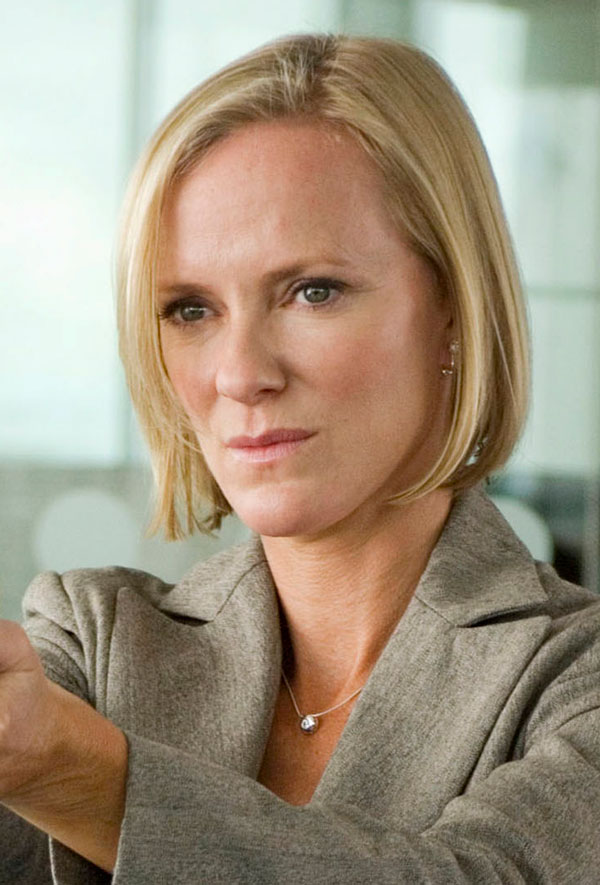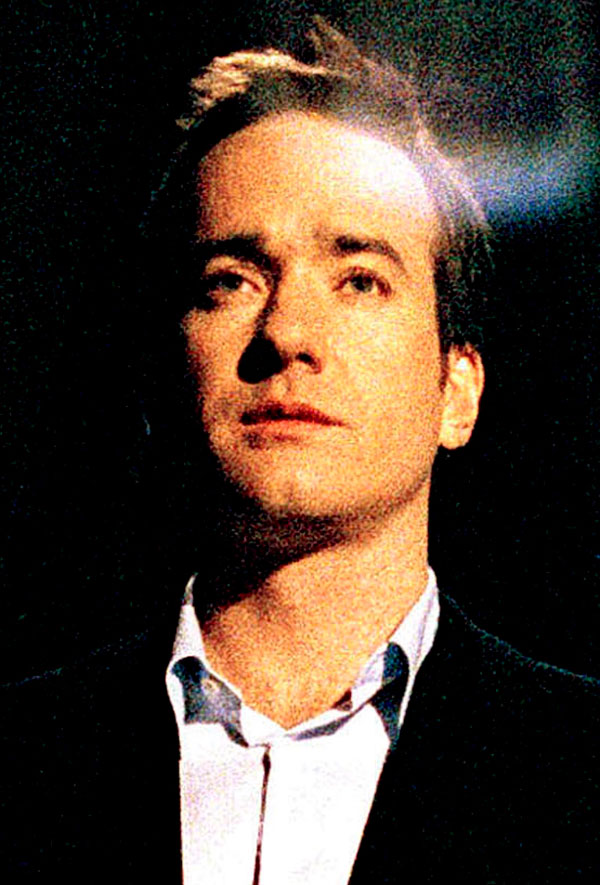With every newspaper’s front page a potential storyline and the public beginning to ring-fence Mondays at 9pm for its weekly dose of espionage thrills, Spooks had entered the TV zeitgeist. Eschewing the US showrunner model, the show powered on with Kudos’s Jane Featherstone, her producers and an ever-rotating team of head writers constantly tweaking the formula without sacrificing the style.
Macfadyen: We started shooting in late 2001, just after 9/11, and did an episode (‘I Spy Apocalypse’) where we simulated a disaster and went into lockdown. That exact story was on the news.
Agutter: Suddenly it was so timely because it was the first we were hearing about Al-Qaeda and suicide bombers.
Featherstone: It was a terrible zeitgeist to be in but it’s television’s job to reflect the world around it.
Nulluri: From the get-go the core of every episode was this idea about choosing the lesser of two evils.
Agutter: I was intrigued by this idea of blurred morality. I used to say, “Well, is my character good or bad? Which way are we going with this?”
Featherstone: You’d find yourself talking about very serious things, then you have to burst the bubble a little bit. You’re only making television. The writers’ rooms were hilarious places. We’d make up preposterous stuff.
Jonathan Brackley (writer): My fondest memories will always be sitting with the other writers and producers figuring out what the next big geo-political issue would be and trying to feed that back into the show. We were fans of the show from before we were even writing professionally, so it was a dream gig.
Featherstone: [Screenwriters] David Wolstencroft and Simon Mirren brought us into contact with great ex-spies. A lot of what you see in the first series was inspired by real-life incidents.
Nalluri: Even the fake dog poo used for dead drops was a real thing. It’s the most bonkers idea, but then again, no-one’s going to pick up a dog poo. We’d also heard this story from ex-spies where [agents] had gone into a house and the cat had escaped and it was raining outside, so they’d had to blow-dry it to cover up the break-in. We thought, “Are you kidding? We’ve got to do this.”
Macfadyen: Especially early on in Spooks, it wasn’t running around with guns, it was really mundane tradecraft. It was much more le Carré than Bond.
“From my first scene there was something between Ruth and Harry. You can’t help finding yourself flirting with Peter Firth!”
Nalluri: Peter was so good as Harry Pearce that people started writing for him and his role became bigger and bigger and bigger.
Hugh Simon (Malcolm Wynn-Jones): I saw Malcolm as the Thunderbirds’ Brains character, with a touch of Q.
Norris: Ruth is my favourite character. I thought Nicola Walker was great, and I loved Gemma Jones (treacherous agent Connie James). There were some great female characters in Spooks.
Richard Armitage (Lucas North): I loved working with the character of Ros and working with Hermione [Norris]. If you look at Robin Wright in House Of Cards, I feel like she’s watched Hermione in Spooks. She’s just a cool character.
Firth: [Harry’s chemistry with Ruth] was manna from heaven to show his human side. There was nothing scripted between Ruth and Harry when Nicola arrived in the second series but we were flirting away. There’d be moments where a look was held too long or there’d be a blush.
Walker: You can’t help finding yourself flirting with Peter Firth, I’m sorry! From my first scene, which was me coming and dropping files, there was something there between Ruth and Harry. The writers started to spot something that was happening between me and Peter on camera.
Firth: It was always good to have new talent coming aboard, because it would shift the dynamic.
Norris: As an actor [joining an established show] you think, “Where’s the show at? Is there still enthusiasm for it?” When something’s been around for a while, it can wane. That was not the case with Spooks.
Rupert Penry-Jones (Adam Carter): I was in an antiques shop when Jane Featherstone, an old friend of mine, came in and we got talking. I’d seen Spooks and knew what a huge success it was and said, “Hey, why didn’t you ever get me in for a meeting?” And she said, “Well, it’s funny you should say that because Matthew’s leaving. Would you be interested?”
Norris: Walking onto a show that people clearly love makes you anxious. It’s like your first day at school.
Penry-Jones: My first scene was me doing a drunk, homeless man with a terrible Scottish accent. It’s funny coming in when everyone is so close and their main guy is leaving. But they were all really nice and I’m still friends with them all.

